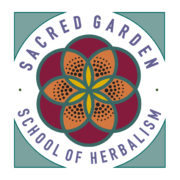UPCOMING EVENTS
Conscious Kids Story & Tea Time
with Lakeja Baylor

Foundational Herbology
9 month program is now enrolling!

Registration closes March 15th
+++++++++++++
Women’s Herbal Wellness Class Series
with Alicia Garza
Grounded Sound Baths
with Terrie Weaver

Fridays March 6th & 20th
6:00 pm
*************
3-Day Immersion: Reading the Body Immersion
with Margi Flint

October 23rd-25th : 10am-4pm
Hold your spot here







Rosemary
/in Herb of the Month /by Ashley DavisRosemary is a well-known culinary herb with a distinct flavor that pairs well with citrus, meats, vegetables and cheeses. Its powerful antioxidant and antimicrobial properties made it an ideal spice help preserve foods in the days before refrigerators and preservatives. It’s got a strong flavor and a strong personality and a pinch of rosemary a day can do wonders for your nervous, digestive and circulatory systems.
BOTANICAL NAME: Rosmarinus officinalis
FAMILY: Lamiaceae (mint)
PARTS USED: Arial parts (primarily leaf, but flower and stem can be used)
BOTANICAL DESCRIPTION: A strongly fragrant, evergreen, woody shrub native to the Mediterranean region, characterized by needle-like, dark green leaves and small, two-lipped, pale blue to purple flowers that bloom in clusters along the stems. The stems are woody and branched, with new growth being soft and flexible, becoming more rigid with age.
ENERGETICS AND TASTE: Spicy, warm, stimulating, diffusive, astringent
CHEMICAL CONSTITUENTS: Volatile oils (including borneol, camphene, camphor, cineole, limonene, linalool, a-pinene, beta-caryophyllene, and myrcene), flavonoids, rosmarinic acid and other phenolic acids, diterpenes, triterpenes (1)
ACTIONS AND PROPERTIES: antibacterial, anti-inflammatory, anti-oxidant, anti-spasmodic (smooth muscle relaxant), circulatory stimulant, tonic, astringent, diaphoretic, stomachic, cholagogue, capillary stabilizer
INDICATIONS: Rosemary’s warming and stimulating action stimulates the metabolism, enhancing the burning and consumption of blood sugars and fats, thereby warming, cleaning, and oxidizing throughout the body and mind. As a circulatory tonic, it is said to embrace all 3 elements necessary to treat the heart – tonic, cleansing, and nervine actions. It is therefore ideal for atherosclerosis, high cholesterol, and high blood pressure. Rosemary decreases capillary fragility, increases coronary blood flow and supports circulation all over the body, including the skin, extremities, and head. As a diaphoretic, it can bring more blood to the surface and open the pores, releasing trapped heat and helping to break a fever.
It has a reputation for increasing memory and clearing stagnated cerebral flow which causes vertigo, fainting, loss of memory, ‘foggy brain,’ and headaches. Secondary effects from increased cerebral flow help clear depression, anxiety, and nervousness. It may also improve vision. Matthew Wood recommends rosemary for persons with lack of self-identity and strength of personality, older persons with poor circulation, and those with diminished appetite, bitter taste in the mouth, or bad breath (3).
While it may be stimulating to circulation and metabolism, it is also relaxing to the nervous system and smooth muscles. Not sedating, but it relieves tension on both a physical and emotional level. The volatile oils influence the limbic system and shift one’s sense of awareness to be calm yet alert. Studies done with rosemary essential oil showed that participants exposed to rosemary oil (as aromatherapy) had decreased frontal alpha and beta power, increased alertness, lower anxiety and reported feeling more relaxed and alert. When given simple math problems before and after the rosemary treatment, participants were able to complete the equations faster, but not necessarily more accurately, following treatment (5).
Rosemary makes an excellent tonic for the elderly as it will stimulate the appetite, support the digestive fire, prevent digestive stagnation and the accompanying fermentation, and relieve flatulence and distension due to weak digestion. The bitter taste stimulates digestive secretion and aids in assimilation by stimulating the liver and gallbladder, increasing bile production and supporting the breakdown of fats.
Topically, it can provide follicle stimulation to decrease hair loss and stimulate new growth. It can also be helpful for neuralgia and other acute pains when applied topically as an infused oil or essential oil (essential oil must be diluted before applying to skin). Rosemary baths are lovely way to enjoy this herb as well and were once considered tonifying for people who are run-down, hypotensive and pale. Baths can also be helpful for breaking a fever, relieving arthritic and muscular pains and gently warming and relaxing the body. Perfect for a cold winter day!
PREPARATION & DOSAGE: Soluble in water, alcohol, oil, glycerin
CONTRAINDICATIONS: Brinker contraindicates the use of Rosmarinus during pregnancy due to empirical emmenagogue and abortifacient effects and toxic side effects of the essential oil. (7) That is referring to therapeutic dosing, and it is safe for pregnant women to enjoy rosemary as a culinary herb without concern. Essential oils are highly concentrated and are very different than whole plant preparations.
DRUG INTERACTIONS: Rosemary may interact with anticoagulants, ACE inhibitors, diuretics, lithium, and anti-diabetic medications because of its actions on the cardiac and circulatory system. Consult a physician before adding clinical doses of rosemary to existing pharmaceuticals for these conditions.
COMBINATIONS: For improved cognitive function, use with gotu kola, bacopa, ginkgo biloba, and lion’s mane
HOMEOPATHIC USE: None listed in Boericke’s New Manual of Homeopathic Materia Medica with Repertory, William Boericke
FLOWER ESSENCE USE: The flower of loyalty. Rosemary brings clarity of mind, and peace and balance to the emotions, enabling a meditative state. The remedy increases both physically and emotionally and enhances creativity. It symbolizes the blooming of higher thought form in the midst of activity (2).
ETHNOBOTANY/FOLKLORE/HISTORY: A sprig of rosemary was often placed in the hands of the deceased at a funeral because it is a symbol of remembrance. Brides often wore rosemary at their weddings because it was also a symbol of happiness, loyalty and love. Legend has it that rosemary originally had white flowers which were changed to blue ones when the virgin Mary placed her cloak upon it while resting during her flight to Egypt.
REFERENCES:
***This article is for educational purposes and is not intended to treat, diagnose or cure any disease. These statements have not been evaluated by the FDA***